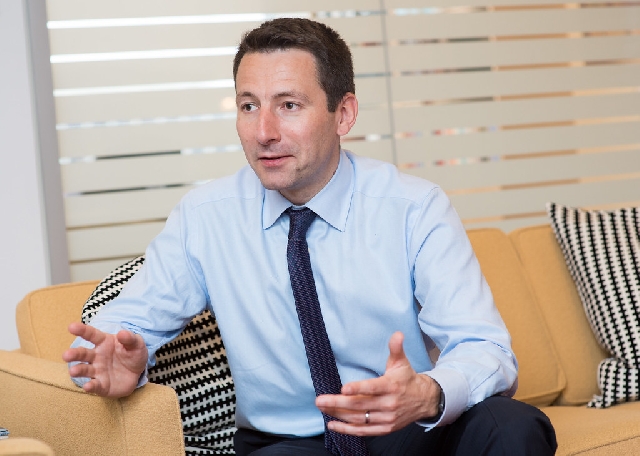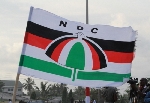US$3bn deal: Ghana's 'decisive' recovery programme'll help 'overcome immediate economic, financing challenges & pave way for brighter future' – IMF Mission Chief
 IMF Mission Chief for Ghana, Stephane Roudet
IMF Mission Chief for Ghana, Stephane Roudet
IMF Mission Chief for Ghana, Stephane Roudet, has said Ghana's economic recovery programe under the supervision of the Fund couoled with its policies, reforms, and debt restructuring, "will help Ghana overcome immediate economic and financing challenges and pave the way for a brighter future for all Ghanaians".
At a joint press conference following the IMF's approval of a $3 billion-3-year programme for Ghana, Mr Roudet said, Ghana has been facing a "severe economic and financial crisis with a debt burden assessed as unsustainable".
More specifically, he mentioned that a combination of "pre-existing vulnerability and external shocks as the COVID-19 pandemic, Russia’s war in Ukraine have resulted in acute financing pressures, depreciating cedi, declining international reserves, slowing economic activities, and high inflation".
In response to these difficult circumstances, the Ghanaian authorities, he observed, "have taken decisive steps".
"Just to give you a few examples, the 2023 budget and the associated revenue reforms were very important first steps towards putting public finances back on the sustainable track".
To restore that sustainability, he pointed out that the government has launched a "comprehensive debt restructuring; and the Bank of Ghana has also taken decisive steps to control inflation, and these efforts are already paying off".
These, Mr Roudet noted, "are all essential ingredients to address the current challenges and to boost Ghana’s prospects going forward".
"Of course", he added, 'help from the international community is also needed, and the IMF is playing its part".
"The $3 billion extended credit facility approved by the Board, by our Board will support the government’s efforts to address this crisis and build the foundations for a better and more inclusive future for all Ghanaians", Mr Roudet said.
"It will also help ease financing constraints, including by unlocking more funding from the rest of the international community", he said.
Ghana’s economic programme has three key objectives.
The first one is to restore macroeconomic stability. The second one is to ensure the debt is put on a sustainable path; and the third one is to lay the foundations for stronger and more inclusive growth, Mr Roudet outlined.
To reach these objectives, he said "several policy priorities have been laid out by the government".
"Firstly, large and front-loaded measures to bring public finances back on a sustainable path, and this will be done by mobilising more domestic revenue and by improving the efficiency of public spending. Importantly, and I want to emphasise, that the programme does, and will continue to, include efforts to protect the vulnerable".
"Just to give you a few examples: the 2023 budget has, for example, doubled the level of benefits for the existing targeted cash transfer programme, the LEAP, the Living Empowerment Against Poverty programme. It has also boosted allocations towards the school feeding programme".
"Secondly, to support fiscal adjustment and enhance resilience to shocks, ambitious structural reforms will be implemented.
In the areas of tax policy, revenue administration, public financial management, as well as reforms to address the weaknesses in the energy and the cocoa sectors".
"Thirdly, and I already referred to that, steps are being taken to bring inflation under control; and the Bank of Ghana has been raising interest rates and has, virtually, eliminated monetary financing of the budget", Mr Roudet enlisted.
He said "a flexible exchange rate policy will also be implemented to help rebuild international reserves".
Fourthly, he said "measures to preserve financial stability are very central to the programme; and, last, but not least, the government will also be implementing reforms to encourage private investment, higher growth, and job creation".
Source: classfmonline.com
Trending News

NE/R: Curfew imposed on Nalerigu township
19:15
Ho and Hohoe earmarked for metropolitan status as government unveils Oxygen City housing project
23:14
Tse-Addo lands: Presidency petitioned over alleged actions of Interior Minister
16:19
President Mahama calls on ECOWAS to commit to dialogue and engagement with Sahel States
18:48
Kwame Danso district court shut down following violent incidents – CJ directs
15:33
Concerned NDC members in Larabanga petition President Mahama over marginalisation
18:05
Housing Project: President Mahama launches Oxygen City in Volta, reaffirms commitment to equitable regional development
23:20
Citizen Ato Dadzie praises Lordina Mahama's humility
16:05
Yoruba Kingdom honours Prez. Mahama for global leadership
15:28
Midwifery hackathon aims to reduce maternal mortality in Ghana
15:32




